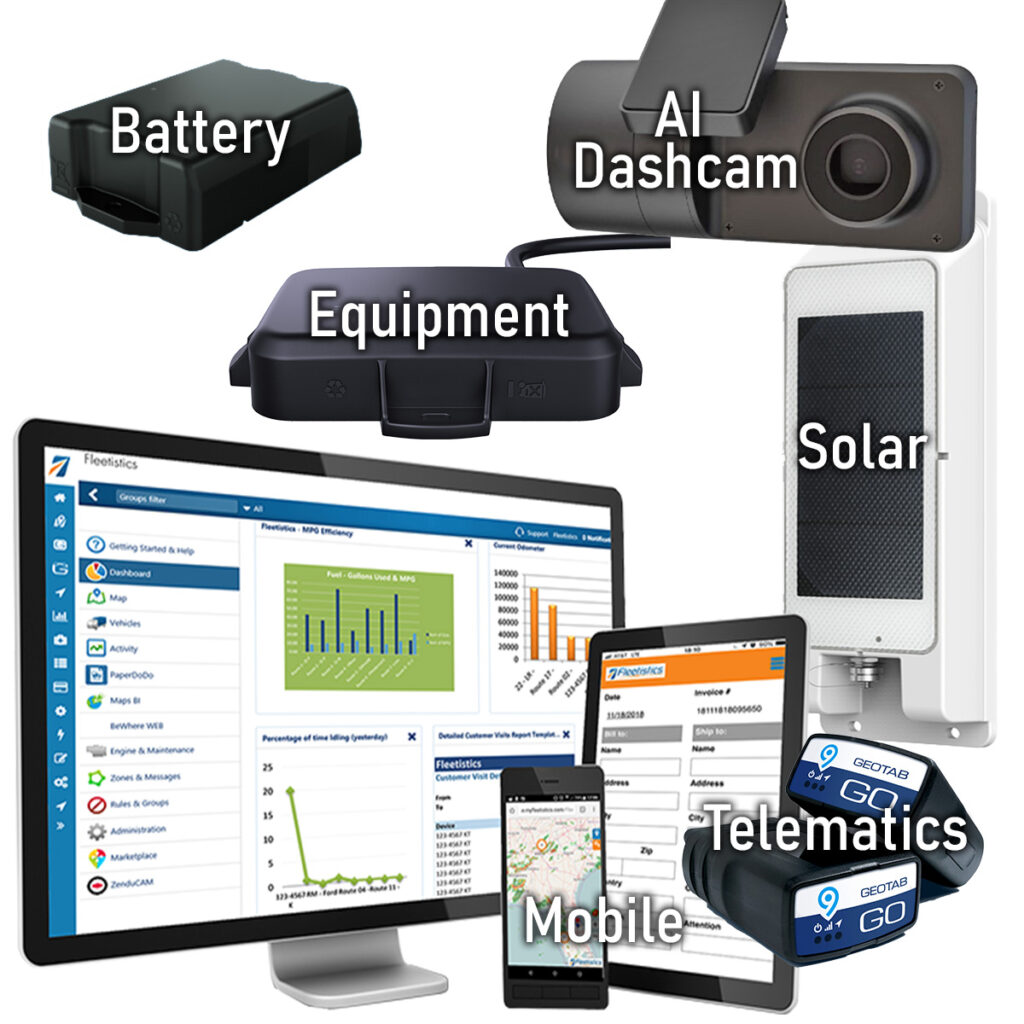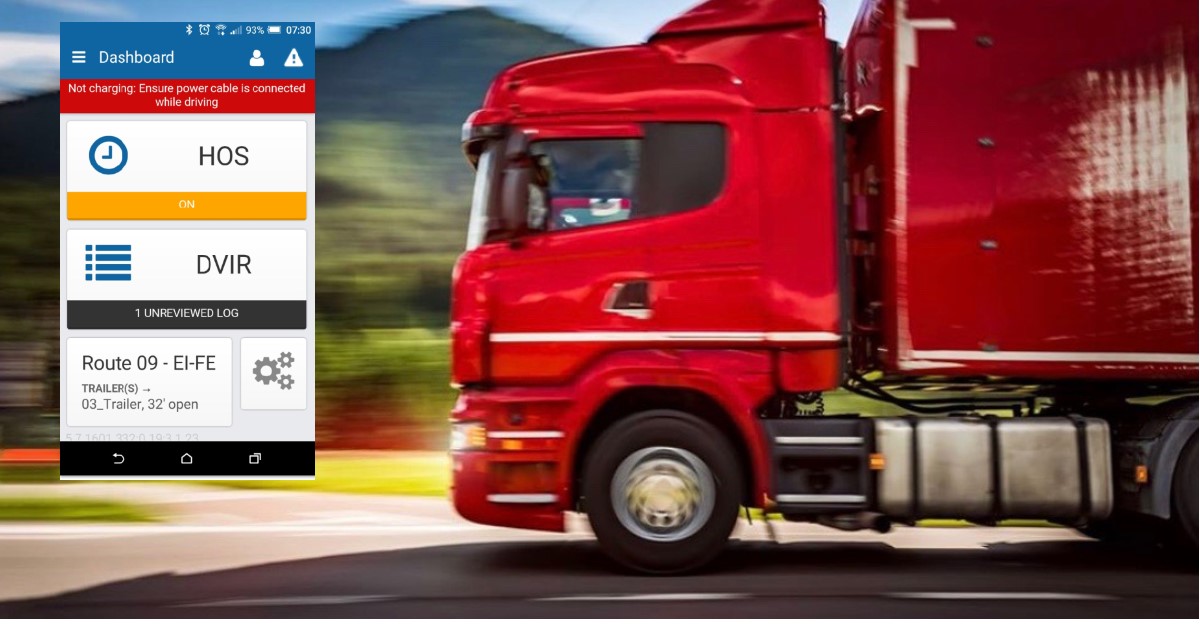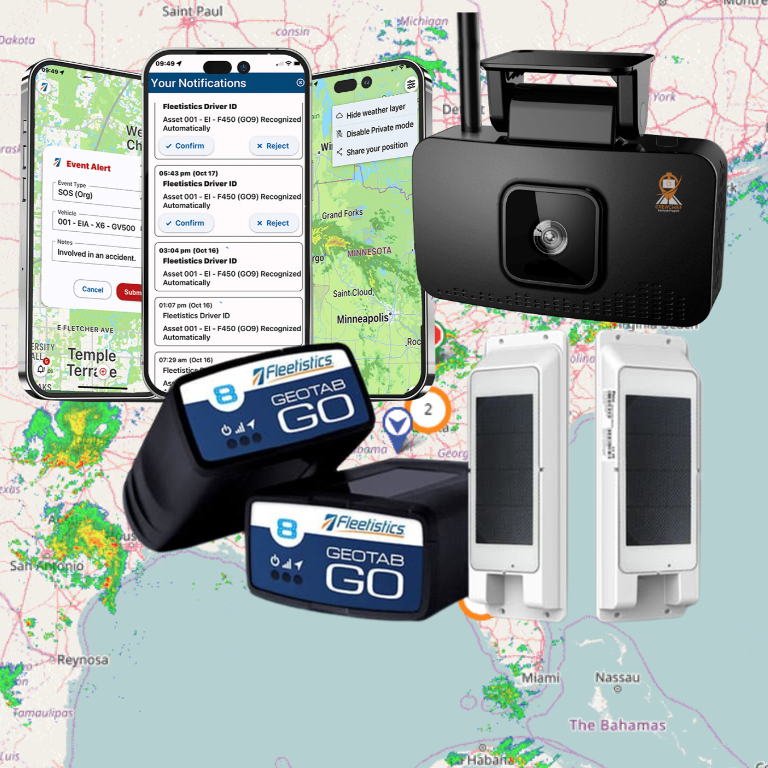Current Trends in Fleet Management
Fleet management utilizing technology is a complex, dynamic field. It’s a critical component for both delivery and service providers of all types. The role of fleet management extends beyond mere vehicle tracking. It encompasses a wide range of tasks, from route optimization to driver safety programs.
In recent years, technology has revolutionized fleet management. GPS tracking, telematics, and data analytics have become integral to efficient operations. But what does the future hold in terms of trends in fleet management solutions? How will emerging trends in fleet management shape this vital industry?
This article explores the future trends in fleet management. It delves into the impact of technologies like autonomous vehicles, electric fleets, and predictive maintenance. Whether you’re a logistics manager, a fleet manager, or a business owner, this article will provide valuable insights. Stay ahead of the curve by understanding the future trends in fleet management solutions.

Understanding Fleet Management
Fleet management is a multifaceted discipline. It involves managing and coordinating a company’s fleet of vehicles to optimize operations. The goal is to improve efficiency, reduce costs, and ensure compliance with regulations. It’s a critical aspect of supply chain management, impacting delivery times, customer satisfaction, and overall business performance.
Fleet management is not a one-size-fits-all solution. It varies depending on the size of the fleet, the nature of the business, and specific operational requirements.
The Role of Fleet Managers
Fleet managers play a pivotal role. They are responsible for overseeing the fleet’s daily operations and ensuring optimal performance. Their duties include vehicle maintenance, route planning, and driver management. They also handle regulatory compliance, ensuring that all vehicles meet safety and environmental standards.
Fleet managers also play a strategic role. They analyze data to identify trends, make informed decisions, and plan for future needs. Effective fleet management involves several key components. These include:
• Vehicle Acquisition and Maintenance
Selecting the right vehicles for the fleet and ensuring they are well-maintained is crucial. This involves regular servicing, repairs, and eventual disposal of vehicles.
• Driver Management
This includes hiring, training, and monitoring drivers. It also involves implementing safety programs and ensuring compliance with driving regulations.
• Route Optimization
Planning efficient routes can save time and fuel. It also ensures timely service calls and deliveries, enhancing customer satisfaction.
• Data Analysis and Reporting
Fleet managers use data to monitor performance, identify issues, and make informed decisions. This includes tracking fuel consumption, vehicle utilization, and driver behavior.
Each of these components is critical to the success of fleet management. They work together to ensure smooth, efficient, and cost-effective operations.

The Evolution of Fleet Management Technology
Technology has revolutionized fleet management. It has transformed the way fleet managers monitor vehicles, plan routes, and analyze data. In the past, fleet management was largely manual. Managers relied on paper logs and physical maps. This was time-consuming and prone to errors.
Today, fleet management is increasingly digital. Advanced technologies like GPS tracking, telematics, and IoT devices have automated many tasks. They provide real-time data, enhancing decision-making and operational efficiency.
From GPS Tracking to Advanced Telematics
GPS tracking was one of the first technologies to impact fleet management. It allowed managers to track vehicles in real-time, improving route planning and driver accountability. Over time, trends in fleet management technology and GPS tracking have evolved into advanced telematics.
Telematics combines GPS technology with onboard diagnostics to collect detailed data about each vehicle. This data includes location, speed, fuel consumption, and engine performance. It can even monitor driver behavior, such as braking and acceleration patterns. Telematics provides a wealth of information. It helps fleet managers identify issues, optimize operations, and make informed decisions.
The Impact of IoT and Connectivity
The Internet of Things (IoT) has further enhanced fleet management. IoT devices can be installed in vehicles to collect and transmit data in real-time to capture video, monitor temperature, monitor tire pressure, and much more. This data can be analyzed to monitor vehicle health, track fuel consumption, and predict maintenance needs. It can also be used to monitor driver behavior and ensure compliance with safety regulations.
IoT connectivity also enables communication between vehicles and infrastructure. This vehicle-to-everything (V2X) communication can allow fleets to bypass weigh stations, and improve safety, efficiency, and even be used to improve traffic management.
Future Trends in Fleet Management

The future of fleet management is exciting. It is being shaped by several key trends that promise to transform the industry. These trends include the rise of autonomous and electric vehicles, the use of predictive maintenance and AI, the importance of data analytics and real-time monitoring, and the focus on sustainability and green logistics.
Each of these trends presents both opportunities and challenges. They require fleet managers to stay informed, adapt quickly, and embrace innovation.
Autonomous and Electric Vehicles
Autonomous vehicles are no longer a distant dream. They are becoming a reality, with several companies testing self-driving trucks and vans. These vehicles can reduce labor costs, increase efficiency, and improve safety. However, they also raise new challenges, such as regulatory issues and cybersecurity risks.
Electric vehicles (EVs) are another major trend. They offer significant benefits, including lower fuel costs and reduced emissions. However, they require new infrastructure, such as charging stations, and have a shorter range than traditional vehicles. Fleetistics is able to assist you with tools to evaluate the suitability of specific EVs and hybrids for different roles in your fleet (based on the usage data from your current fossil fueled vehicles), before you invest in them.
Predictive Maintenance and AI
Predictive maintenance is transforming fleet management. It uses data and AI to predict when a vehicle will need maintenance. This approach can reduce downtime, extend vehicle life, and lower maintenance costs. However, it requires sophisticated data analysis and may involve upfront investment in technology.
AI is also being used to automate other tasks, such as route planning and dispatch. This can increase efficiency and reduce human error.
Data Analytics and Real-Time Monitoring
Data is at the heart of modern fleet management. It provides insights into vehicle performance, driver behavior, fuel consumption, and more. Real-time monitoring allows fleet managers to track vehicles and respond to issues immediately. It can improve safety, efficiency, and customer service.
However, managing and analyzing large amounts of data can be challenging. It requires robust IT infrastructure and skilled personnel.
Sustainability and Green Logistics
Sustainability is a key concern for many businesses. In fleet management, this involves reducing emissions, improving fuel efficiency, and minimizing waste. Green logistics can involve a range of strategies, from adopting EVs to optimizing routes. It can also involve using renewable energy sources, such as solar power, for charging stations. However, implementing green logistics can be complex and may require significant investment. It also requires a long-term commitment and a willingness to innovate.
Challenges and Opportunities in Modern Fleet Management

The rapid evolution of fleet management brings both challenges and opportunities. It requires fleet managers to navigate a complex landscape of new technologies, regulations, and customer expectations.
One of the key challenges is keeping up with the pace of change. New technologies are constantly emerging, and fleet managers must stay informed and be ready to adapt. At the same time, these technologies offer significant opportunities. They can improve efficiency, reduce costs, enhance safety, and provide valuable data insights. However, leveraging these opportunities requires investment in technology, training, and infrastructure.
It also requires a strategic approach, with a clear vision of how technology can support your business objectives.
Regulatory Compliance and Safety Standards
Regulatory compliance is another major challenge in fleet management. Fleet managers must ensure that their operations comply with a range of regulations, from vehicle emissions standards to driver hours of service rules.
These regulations are designed to ensure safety and protect the environment. However, they can be complex and vary between regions, making compliance a complex task.
At the same time, compliance can be an opportunity. By demonstrating a commitment to safety and environmental responsibility, companies can enhance their reputation and build trust with customers.
Cybersecurity in Fleet Data Management
Cybersecurity is a critical issue in modern fleet management. As fleets become more connected and data-driven, they become more vulnerable to cyber threats.
These threats can range from data breaches to vehicle hacking. They can result in significant financial losses, damage to reputation, and even physical harm.
To mitigate these risks, fleet managers must implement robust cybersecurity measures. This includes secure data storage and transmission, regular system updates, and employee training. However, cybersecurity is not just a challenge. It is also an opportunity to demonstrate a commitment to data protection and build trust with customers and partners.
Implementing Future Fleet Management Solutions
Implementing future fleet management solutions requires a strategic approach. It’s not just about adopting the latest technologies, but about integrating them into a cohesive system that supports your business objectives.
This involves careful planning and project management. It requires a clear understanding of the business needs, the available technologies, and how they can be effectively integrated. It also requires a commitment to continuous improvement. As technologies evolve and business needs change, the fleet management system must be able to adapt and evolve.
The Role of Fleet Management Software
Fleet management software plays a crucial role in modern fleet operations. It provides a centralized platform for managing all aspects of fleet operations, from vehicle tracking to maintenance scheduling.
The best fleet management software is flexible and scalable. It can be customized to meet the specific needs of the business and can scale as the business grows.
Moreover, it provides valuable data insights. By collecting and analyzing data from across the fleet, it can help managers make informed decisions and identify opportunities for improvement.
Training and Development for Fleet Professionals
Training and development are key components of successful fleet management. As technologies evolve, fleet professionals must continually update their skills and knowledge. This includes technical training on new systems and technologies. But it also includes broader skills, such as project management and strategic planning.
Moreover, training and development is not just about skills. It’s also about fostering a culture of continuous learning and innovation, which is crucial for staying ahead in a rapidly evolving industry.
Fleetistics highly trained staff includes a Business Analyst to assist our clients in discovering applications for new technology and successfully implementing it to streamline day to day operations.
Conclusion: Preparing for the Future of Fleet Management
Speculating about future trends in fleet management is exciting and promises to be full of potential. With advancements in technology and a growing emphasis on sustainability and efficiency, the industry is poised for significant transformation. However, preparing for this future requires a proactive approach.
It involves staying abreast of the latest trends, investing in the right technologies, and fostering a culture of continuous learning and innovation. By doing so, businesses can leverage the power of modern fleet management to drive efficiency, improve service, and achieve their strategic objectives.










